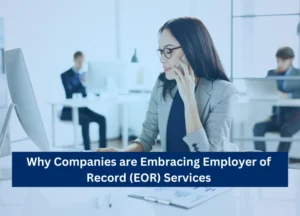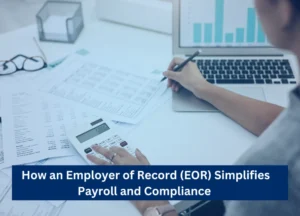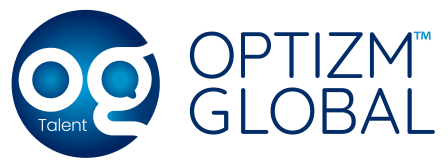Artificial intelligence, which can handle massive volumes of data and generate valuable insights, has revolutionized the hiring process. One of the most important uses of AI in this industry is resume screening.
Additionally, AI-powered chatbots have helped automate communication between candidates and recruiters. These chatbots can interact with potential applicants, answer questions, and even perform preliminary interviews, freeing up crucial time for human recruiters to concentrate on more strategic elements of the recruiting process.
Traditionally, HR professionals would spend hours going through resumes to narrow down applicants, but AI has transformed the process. Its algorithms can swiftly assess resumes, finding critical abilities, experiences, and qualities, expediting the earliest steps of the hiring process.
AI and automation have increasingly become prominent forces driving various sectors in the digital age. The recruitment industry is no exception to this technological evolution. This article will delve into the impact of these advancements on recruitment, examine the merits, and explore the potential challenges and ethical considerations involved.
How Does Automation Enhance Efficiency During the Recruitment Process?
Saves Time: AI automated tools have changed the efficiency of the hiring process. Automation now effortlessly handles repetitive and time-consuming processes such as interview scheduling, follow-up email sending, and applicant database management. This reduces the recruiting period and provides a more uniform and error-free procedure.
Applicant Tracking Systems (ATS) are a well-known example of recruitment automation. These solutions handle hiring, from advertising job opportunities to onboarding new employees, optimizing procedures, and offering a single platform for cooperation across hiring teams.
Simplified Resume Screening: Automation’s impact is evident during the screening and assessment. AI-powered technologies quickly scrutinize resumes and pre-screen replies, freeing up recruiters to focus on analyzing individuals who satisfy critical qualities.
The interview process is expedited using automated scheduling technologies, which solve logistical issues and reduce the possibility of scheduling conflicts. Even during the vital onboarding process, automation helps to provide a favorable experience for new staff. Automated workflows assure paperwork completion, distribution of training materials, and introductions to team members, resulting in a smooth transfer into the company.
Furthermore, including feedback loops in the hiring process enables continual development, with insights gained from hiring managers, candidates, and stakeholders driving continuing strategies.
AI-induced Automation Process Uses Predictive Analytics In Hiring Decisions for Accurate Results
Predictive analytics powered by AI offers a new era in recruiting techniques, providing an improved approach to decision-making. These advanced tools may anticipate individual performance in a single function and broader hiring trends. AI can find the most successful applicant recruitment sources and ideal outreach techniques by analyzing recruiting patterns and foreseeing prospective hiring pipeline difficulties.
This forward-thinking predictive analytics component allows businesses to adapt their recruitment strategy proactively. For example, historical data shows an increase in suitable applicants from various demographics over critical periods. In that case, recruiters might strategically devote resources to capitalize on these patterns. Furthermore, predictive analytics may help with workforce planning by anticipating future labor demands based on previous turnover rates.
Challenges and Ethical Considerations:
Integrating automated tools into recruiting has obstacles and ethical implications, as with any transformational technology. Some people are concerned about job displacement because automation might replace some mundane operations that recruiters used to conduct. Addressing these problems requires finding a balance between technical progress and human interaction.Data privacy and security raise ethical concerns as well. AI systems rely on big datasets for training; therefore, enterprises must prioritize the security of sensitive candidate information to maintain confidence and comply with data protection rules.
Automated AI tools are transforming the recruiting situation, enabling greater efficiency, data-driven decision-making, and the possibility of more inclusive hiring procedures. While problems and ethical concerns must be addressed, these technologies’ overall influence on recruiting is evident.
The Human Touch in Recruitment:
Despite significant advances in automated tools and systems in the recruiting environment, inherent attributes characterize the human touch, rendering it irreplaceable. Human recruiters bring distinct talents, including emotional intelligence, cultural knowledge, and the ability to assess soft skills beyond what computers can detect. The complexities of interpersonal connections and the dynamic aspects of candidate interactions need a high level of human understanding. While AI can simply process data and spot trends, it needs to have the intuitive awareness of individual motivations, goals, and personal context that human recruiters process.
The synergy between AI and the human touch is where the genuine strength of recruitment lies. A positive relationship that uses technology’s accuracy while valuing people’s sympathetic and intuitive abilities. Recognizing and cultivating this symbiotic relationship means that recruiting processes are efficient and deeply responsive to the overall requirements of the company and the recruited individuals.
Conclusion
Looking ahead, the future of recruiting is linked to AI tools. The advancement of these technologies will probably result in a more complicated yet efficient hiring process. The use of AI in talent assessments, virtual reality for engaging candidate experiences, and advanced analytics for workforce planning are just a few examples of what the future holds.
Companies that embrace these technology innovations stand to gain a competitive advantage in attracting and maintaining top people. The capacity to adapt and exploit AI and automation in recruiting will determine success in today’s fast-paced and ever-changing work environment.
The future of recruiting is a seamless combination of technology innovation with the human touch, resulting in a dynamic and responsive approach to discovering the right talent for the appropriate jobs. As firms embark on this revolutionary path, harnessing the potential of AI and automation in recruiting is no longer a choice but a strategic need for success in an ever-changing workplace.












